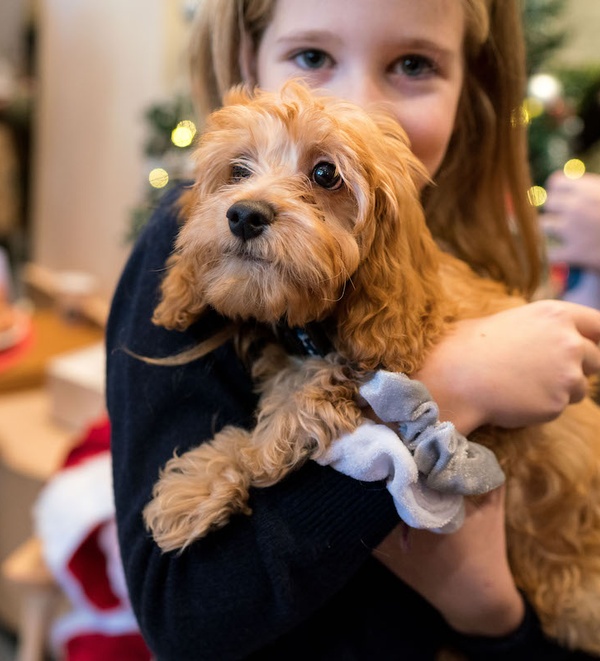
Why Are Cats & Dogs Scared of Fireworks?
The loud noises and flashing lights can frighten them, especially since the sounds are totally unpredictable, harsh on their sensitive ears, and impossible to escape. This may make a pet perceive fireworks as a threat.
Some pets are just mildly uncomfortable with the booms and crackles, while other pets experience full-blown panic.
If your cat or dog is scared of fireworks, they may try to flee the home (and get lost or injured), or accidentally hurt themselves or damage your home while panicking.
Here are some tips to help keep your cat or dog calm and comfortable:
Take your pooch out for a long walk well before fireworks displays start.
Keep windows closed and pets indoors when fireworks are expected. You can go a step further by giving your pet a “safe space,” or a closed room where they feel comfortable and there’s no chance of them darting out the door. They may appreciate being surrounded by their favorite toys and a hiding space in the room, too (like under the bed for cats, or a dog bed or kennel for dogs).
Play background sounds, like white noise, a television show, or calming classical music.
Use pheromone products to help ease your cat's or dog's anxiety. These sprays, wipes, diffusers, and plug-ins release “scent signals” that help relax your pet. Adaptil is one popular product among dog owners. You can also ask your vet about pet-safe, natural calming supplements.
Try an anxiety wrap or Thundershirt, a snug vest that mimics swaddling and has a calming effect on pets (Pro-tip: If your pet is scared of thunder, use the Thundershirt during thunderstorms, too).
Consider medical intervention.
For dogs with mild fireworks anxiety, Benadryl may be an option. Since Benadryl doesn’t reduce fear (it just makes your pet sleepy), it’ll only help pets with mild symptoms. Before using Benadryl, though, ask your vet what dose is safe for your pet.
More fearful pets, however, may require prescription anxiety medications.
Desensitize your dog to loud noises and the sounds of fireworks. If your cat or dog has severe fireworks anxiety, consider working with a behaviorist, who can help your pet develop a healthier response to loud sounds. The process of desensitizing must be started weeks to months before fireworks are expected.
If you’re planning a display of your own, keep pets away from accessing the fireworks directly, and clean up any residues after the show. Fireworks contain substances that are toxic to pets if ingested.
If you don’t yet know how your pet will respond to loud noises, play it safe, and take precautions any time fireworks are expected, like the Fourth of July or New Year's Eve.
SEE ALSO: Holiday Safety Tips for Pet Parents